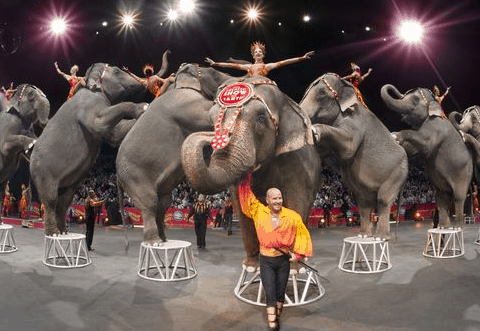
On Wednesday, the Department of Justice released its findings in the investigation of the Michael Brown shooting in Ferguson, Missouri and announced that officer Darren Wilson will not be charged.
But perhaps more significant, the DOJ also released a separate report on its investigation of the Ferguson Police Department.
The 102-page report catalogs various ways racial bias plays into law enforcement in Ferguson. It revealed racist emails sent by Ferguson police offers and found that the systems “are shaped by the City’s focus on revenue rather than by public safety needs.”
Dr. Leah Gunning Francis is the Associate Dean of Contextual Education at Eden Theological Seminary in St. Louis, Missouri. She’s currently partnering with the Forum for Theological Exploration to write Ferguson and Faith, a book exploring church involvement in Ferguson. We talked to her about what the Department of Justice report shows, what it means for the Church and what it looks like for congregations to be agents of social change.
It’s hard to figure out exactly what the DOJ report shows. Could you break it down a little bit?
What has been proven over these last several months is this disproportionate way in which predominantly African-Americans were being stopped and ticketed and often harassed, which would lead to warrants and fines and jail time. It was just this horrible cycle, not only in Ferguson but in many of the small municipalities around it.
There are a lot of different stories about what happened in Ferguson and what is currently happening. How do you think we rectify that?
Quite honestly, I don’t think there will ever be one story that seems to fit or satisfy or cover the scope of what has happened. Personally, I am less concerned with saying, “OK, there needs to only be this one story, and that’s the definitive word,” as opposed to, “What do we do to elevate the level of critical engagement so we can ask some relevant questions to create a fuller picture of what happened, not only on August 9, but what has happened since then?”
What does this new information from the DOJ report mean for the Church?
Well the first thing I wish the Church would process this new information is to consider the question: Why is it that it seems easier for a camel to go through the eye of a needle than it is to violate the civil rights of young black men?
This case has not happened in isolation. The findings from the DOJ come in the context of [a court] found no violation of Trayvon Martin’s civil rights. We’re still waiting with Eric Garner, John Crawford in Ohio. The list goes on and on.
One of the things that came out of this report from the Department of Justice is the issue related to compliance. They affirm—or insist—that if all of these people were just more compliant, the police officers would not have felt that their only recourse was to use deadly force.
My question to that is, if it’s a matter of these people all being just so noncompliant, then why is it that we so rarely hear about these kinds of things happening to white people? Are you saying there are never white people that are “noncompliant” when stopped by police officers? We have enough evidence to know that that’s not true. Then why aren’t we hearing about more 17- and 18-year-old white young men winding up dead when they have been “noncompliant” with police officers?
On the one hand, we’re saying that racial bias exists in traffic stops. But then we’re saying all these people are dead because they’re not obeying. We need congregations and churches to start wrestling with that to say “Why is this not adding up? And why does this only seem to be happening within communities that are minority communities?”
How do you think churches go about wrestling with that?
There are congregations that have already started wrestling with larger questions about race and racism in our country and they are doing so through small groups, through intentional ways of gathering and reflecting.
For example, there was one congregation that had done a book study on The New Jim Crow by Michelle Alexander, where she lays out beautifully the racial bias that is inherent within our criminal justice system. To have people read that book and then gather in smaller groups to critically reflect on the ideas that are put forth, that is one example of a way congregations can begin to engage.
One of the things faith communities can also do is to work to dismantle the narrative of young black men in our country. So long as our society continues to image black men as “gangsters” and “thugs” and “criminals” and “ignorant” and “lazy,” it reinforces in everybody’s mind that that’s who they are. They are subhuman beings and that they need to be subdued or killed before they get you.
We’ve seen that play out time and time again. Darren Wilson said before the grand jury that he felt like a 5-year-old boy hanging onto Hulk Hogan—when he was talking about the incident with Mike Brown. Darren Wilson is 6-feet-4-inches. Mike Brown is 6-feet-4-inches. That’s a real odd statement to make by a 6-foot-4 person talking about another 6-foot-4 person. But behind that narrative was this narrative of the big, burly black man who was “out to get me and I had to get him first.”
So long as this narrative continues to be perpetrated throughout the media, throughout our society, it is not going to end well for our sons. The Church absolutely needs to begin to name these kinds of things. To continue to name young black men as thugs, criminals, ignorant, lazy, stupid, is a crime against their humanity. The Church ought to be offended by that. We’re the ones that say all people are created in the image of God, yet we dehumanize young black men in this way. It needs to stop.
How do you think Christians can participate in these movements and work for change and healing from wherever we are?
While there are not as many of the large marches we saw in New York and other places, what is continuing to happen are the meetings these movements are having to continue, strategizing about what’s next. They are very much still connected and engaged and persuaded that they are in this work for the long haul.
Because, as we see, justice has not come to Ferguson, Missouri. And the likelihood of justice being served in any of these other cases is slim to none. We’re dealing with a very long history of all of this. If things continue to remain the same, there will be no changes, we’ll just be right back here again with a similar incident going on.
At the end of the day, what I understand the Black Lives Matter Movement to be about is about the humanity of black people. So long as young black men are not seen as fully human, we are going to continue to have these and other kinds of incidents. So the question is, are we—we being the Church—willing to come alongside of that? How do we help that to happen within our local communities? For pastors to even start talking about it in ways that are authentic and brave—and that often means you might have to speak a truth that will make some people uncomfortable. But the truth is that until black lives matter as much as white lives matter, we will not be a just, free, humane society that embodies the Kingdom of God on earth.






















